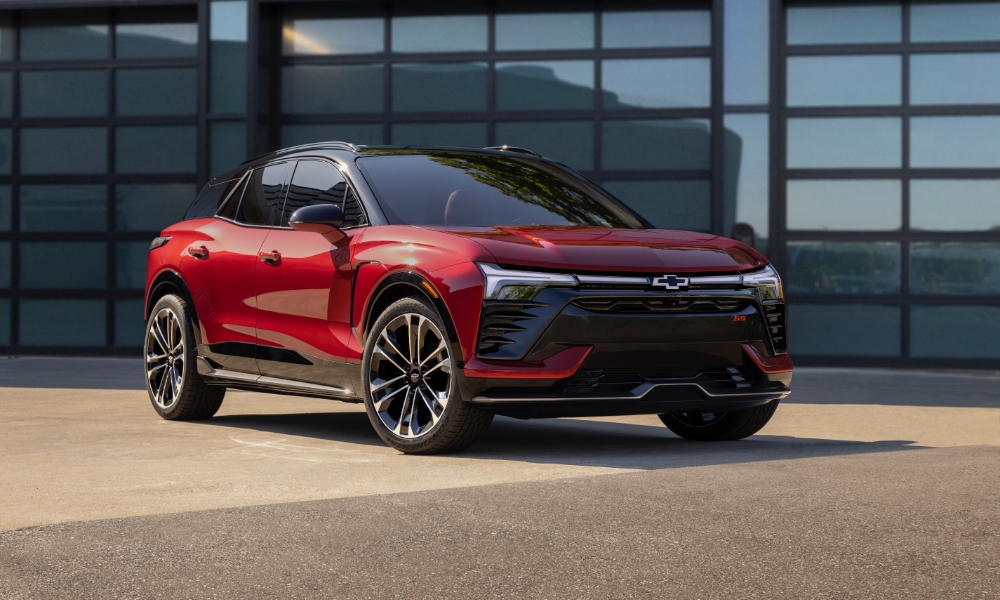GM Claims It’s Dropping CarPlay for Safety Reasons
 Credit: Chevrolet / GM
Credit: Chevrolet / GM
Toggle Dark Mode
Earlier this year, GM announced its plans to ditch CarPlay in its electric vehicles in favor of a custom infotainment system developed by GM in tandem with Google.
At the time, GM’s reasons for doing this seemed pretty clear. Like most such moves, it was a matter of following the money. GM said it wanted to build a system that “will be more tightly integrated with other vehicle systems such as GM’s Super Cruise driver assistant,” which could also collect data on driving habits and potentially lead to an extra $20-25 billion in annual revenue by pushing GM vehicle owners to a subscription model for its services.
However, one GM executive may have put his foot in his mouth more recently by trying to cover the company’s real intentions by providing another reason. According to Tim Babbitt, GM’s head of product for infotainment, GM’s new infotainment system is supposedly all about driver safety.
At a press event for the new Chevy Blazer EV, Babbitt told MotorTrend that CarPlay and Android Auto are problems for safety because they encourage drivers to pick up their phones more often, resulting in driver distraction.
According to Babbitt, CarPlay and Android Auto have stability issues that manifest themselves as bad connections, poor rendering, slow responses, and dropped connections. And when CarPlay and Android Auto have issues, drivers pick up their phones again, taking their eyes off the road and totally defeating the purpose of these phone-mirroring programs. MotorTrend
According to Babbitt, GM believes that by forcing users to do everything through its own built-in systems, they won’t be tempted to pick up their phones, keeping their eyes on the road instead. Babbitt admitted to MotorTrend that GM hasn’t tested this thesis even in the lab, much less the real world, but “believes it has potential if customers go for it.”
When MotorTrend asked Babbitt why plugging the phones in wouldn’t overcome some of the connection issues he spoke of, Babbitt explained that even a physical connection doesn’t solve the problem, as “ iPhones […] suffer from backwards compatibility issues that cause older iPhone models to have trouble running CarPlay consistently.”
Babbitt also cited data from J.D. Power that suggests most vehicle owners tend to blame the manufacturer when CarPlay (or Android Auto) fails to work properly, which could be one of the other fundamental reasons why GM wants to phase the system out — it’s tired of customer complaints with CarPlay and Android Auto dragging down its customer satisfaction scores.
Nevertheless, it seems Babbitt may have spoken out of turn — or, at the very least, GM decided it needed to walk those statements back and do a bit of damage control after a large part of the industry found the “safety” claims to be somewhat laughable.
Shortly after MotorTrend published Babbitt’s comments, a GM spokesperson contacted the publication in an attempt to “clarify” his remarks, saying the company’s position was “misrepresented” and reinforcing its “valued partnerships with Apple and Google and each company’s commitment to driver safety.”
Meanwhile, GM doesn’t seem to be having much success with its new system. As 9to5Mac recently reported, reviewers haven’t been impressed with the new 2024 Chevy Blazer EV — GM’s poster child for a CarPlay-free world — with Edmunds and InsideEVs both reporting serious problems ranging from hardware failures to poor experiences with the in-car infotainment system such as infinite reboot loops and system crashes resulting in one driver spending 20 minutes on the side of the road troubleshooting the system. But at least GM can say they didn’t have to pick up their iPhones while driving.







